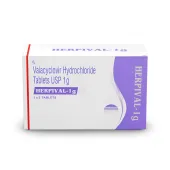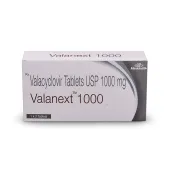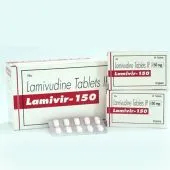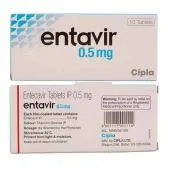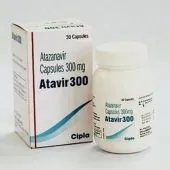HIV & Herpes

-
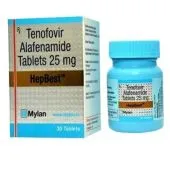
-
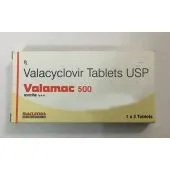
-

-

-
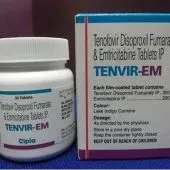
-
 Triohale Inhaler 200 mdi Tiotropium Bromide + Formoterol Fumarate + Ciclesonide 1 Inhaler/s : $30.72As low as $31.35
Triohale Inhaler 200 mdi Tiotropium Bromide + Formoterol Fumarate + Ciclesonide 1 Inhaler/s : $30.72As low as $31.35 -
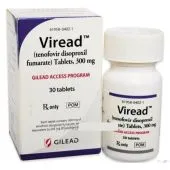
-
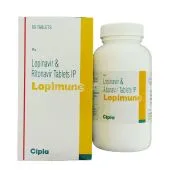
-

HIV (Human Immunodeficiency Virus) and Herpes are the two common sexually transmitted diseases. Genital Herpes increases the risk of HIV infection which can lead to AIDS. The intrusion of Herpes Simplex Virus Type 1 and 2 in the immune system leads to the advent of Genital Herpes and may also result in genital sores. Usually, infected people show no symptoms but can still pass on the infection to others.
Symptoms Of Genital Herpes
Any of the following symptoms of a genital HSV infection can occur in a man or a woman:
- Cracked, raw, or red areas around genitals with or without pain, itching, or tingling
- Itching or tingling around genitals or anal region
- Small blisters that break open and cause painful sores. These may be on or around the genitals (penis or vagina) or on the buttocks, thighs, or rectal areas. More rarely, blisters may occur inside the urethra.
- Pain from urine passing over the sores - it generally occurs in women.
- Headaches
- Backaches
- Flu-like symptoms, including fever, swollen lymph nodes, and fatigue
Genital herpes is not the only condition that can produce these symptoms. Sometimes, HSV is mistaken for vaginal yeast infections, bacterial infections, or bladder infections. The only way to know whether they are the result of HSV or another condition is to be checked by a healthcare provider. Genital herpes is diagnosed with a physical exam and typically confirmed with a swab test or a blood test.
Treatment Of Herpes
There's no cure for genital herpes. Treatment with prescription antiviral medications may:
- Help sores heal sooner during an initial outbreak
- Lessen the severity and duration of symptoms in recurrent outbreaks
- Reduce the frequency of recurrence
- Minimize the chance of transmitting the herpes virus to another
Antiviral medications used for genital herpes include:
- Acyclovir (Zovirax)
- Valacyclovir (Valtrex)
Your doctor may recommend that you take the medicine only when you have symptoms of an outbreak or that you take a certain medication daily, even when you have no signs of an outbreak. These medications are usually well-tolerated, with few side effects.
Symptoms Of HIV
You cannot rely on symptoms to tell whether you have HIV. The only way to know for sure if you have HIV is to get tested. Symptoms can include:
- Rapid weight loss
- Recurring fever or profuse night sweats
- Extreme and unexplained tiredness
- Prolonged swelling of the lymph glands in the armpits, groin, or neck
- Diarrhea that lasts for more than a week
- Sores of the mouth, anus, or genitals
- Pneumonia
- Red, brown, pink, or purplish blotches on or under the skin or inside the mouth, nose, or eyelids
- Memory loss, depression, and other neurologic disorders
Prevention Of Herpes & HIV
- Always use condoms and dental dams during oral, anal, and vaginal sex.
- Talk with your doctor about taking herpes medication every day, which can lower your chances of spreading herpes.
- Don’t have sex during a herpes outbreak, even with a condom. There may be sores on places the condom doesn’t cover.
- Learn how to tell when an outbreak is coming, and stop having sex right when you notice these signs. You may feel a burning, itching, or tingling feeling that lets you know you’re about to get sores.
- Don’t have sex until your sores are totally gone, and the scabs heal and fall off.
- Don’t touch your herpes sores, because you can spread the infection to other parts of your body or other people. If you touch a sore, wash your hands with soap and water right after.
- Don’t wet contact lenses with spit this might spread your oral herpes to your eye.
- If you have a cold sore on your mouth, don't kiss anyone — especially babies, children, or pregnant women.
- Always tell your sexual partners that you have herpes before you have sex, so you can work together to prevent it from spreading. Telling someone you have an STD can be hard, but herpes is super common and doesn’t lead to serious health problems. So try not to be too embarrassed or stressed out about it.
Treatment Of HIV
The drugs meant for the treatment of HIV can be identified in many classes as Protease inhibitors, Entry inhibitors, Chemokine co-receptor antagonists, etc. You are advised not to treat yourself if you are not aware of their effects on your body. However, if you want to buy drugs online, make sure you get them only from a reliable online pharmacy.
Following are some of the common medications doctors prescribe to treat HIV.
- Lopinavir / Ritonavir
- Sofosbuvir
- Efavirenz
- Lamivudine + Zidovudine
- Lamivudine, Nevirapine and Zidovudine
- Abacavir Sulphate
HIV Drug Side Effects
Many HIV drugs can cause temporary side effects when first used. These effects can include:
- Diarrhea
- Dizziness
- Headaches
- Fatigue
- Fever
- Muscle aches
- Nausea
- Vomiting
You may have side effects for several weeks after starting a new medication. If these side effects get worse or last longer than a few weeks, talk to your doctor. Your doctor may suggest ways to ease your side effects, or they may prescribe you a different drug.
Less often, HIV drugs can cause serious or long-term side effects. These effects depend on the type of drugs you’re taking. Your doctor can tell you more.
